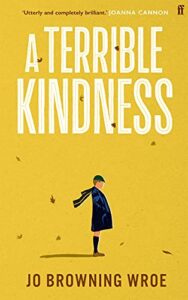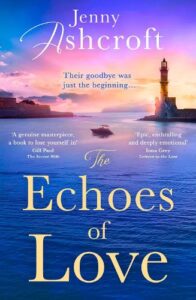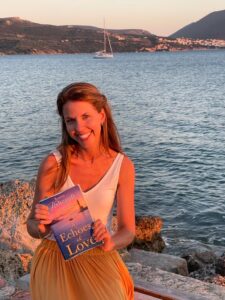Books of the year are always so hard to choose, aren’t they? Sometimes I really don’t know why I put myself through it, but as an author I do know how good it feels when a book appears on such a list, so here goes.
This year I have two. They are so very different I couldn’t put a piece of paper between them.
A Terrible Kindness by Jo Browning Wroe
 What a stunning book. I was drawn to it because it starts at Aberfan, and which cast a long shadow for any child growing up in South Wales in the 1960s and 70s, and because it wasn’t screaming a genre at me. It intrigued me and I wanted to dive in.
What a stunning book. I was drawn to it because it starts at Aberfan, and which cast a long shadow for any child growing up in South Wales in the 1960s and 70s, and because it wasn’t screaming a genre at me. It intrigued me and I wanted to dive in.
William Lavery is a newly qualified embalmer who volunteers his skills to help in the immediate aftermath of Aberfan. It is a part of disaster recovery we rarely consider and the flavour of the book is quickly revealed as it focuses just a little on the mechanics and a great deal on the emotions. You learn just enough of the nuts and bolts to be drawn into William’s world but perhaps it isn’t for the over-squeamish.
William’s is not a world shaped only by the terrible nightmares and flashbacks born from his experiences working on those children’s bodies and we soon learn his past holds its own mysteries and traumas. Piece by piece they are cleverly revealed, building William into one of the most fascinating fictional characters I have come across in recent years, always on a knife edge between genuine happiness and self-destruction.
It is a remarkable debut, full of clever intricacies and memorable characters, but never so over worked that William’s story is not centre stage. I hesitate to use the phrase ‘must read’, but I think losing yourself in this book would be time well spent.
The Echoes of Love by Jenny Ashcroft
 Where do I begin with this incredible book? With the sweeping love story at its gripping heart, or the impeccable historical research, or the phenomenal sense of place and time that had me living and breathing Crete in 1936 and during the Second World War? Or shall I just cut to the chase and tell you this will most likely be my book of the year.
Where do I begin with this incredible book? With the sweeping love story at its gripping heart, or the impeccable historical research, or the phenomenal sense of place and time that had me living and breathing Crete in 1936 and during the Second World War? Or shall I just cut to the chase and tell you this will most likely be my book of the year.
In 1936, eighteen year old Eleni Adams returns from England to Crete to spend the summer with her Greek grandfather, something she has done every year since her mother died when she was a baby. But this summer is different; this summer she falls in love with Otto, the German boy staying in the villa next door, and I was as captivated by the breathlessness of young love, the intensity of feeling, as I was by the setting that made me feel as though I was really sitting above that cove near sun-drenched Chania.
But we all know our history, and in 1941 Crete was captured by the Germans. By that time Eleni is an SOE agent based in the country, and rather than leave she goes underground in the bombed out ruins of the port, to help to support the resistance. Meanwhile Otto was one of the first wave of fighters to be parachuted in; a reluctant Nazi, a man against cruelty and reprisals, and of course their paths cross once again.
Also running through the book is the transcript of an interview from 1974, given by the man who, it becomes apparent, betrayed Eleni. A man who knew her well. A man who she trusted.
This book transported me absolutely, haunted my dreams, tore me apart, and put me back together again. An absolute triumph.
Honourable mentions:
The Postcard from Italy – Angela Petch
Hidden in the Mists – Christina Courtenay
Lifesaving for Beginners – Josie Lloyd

